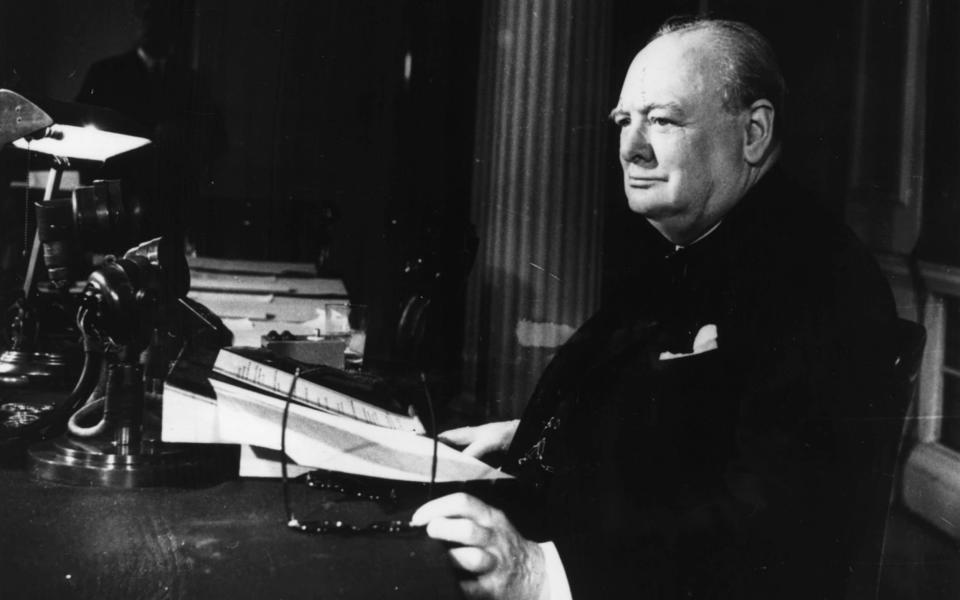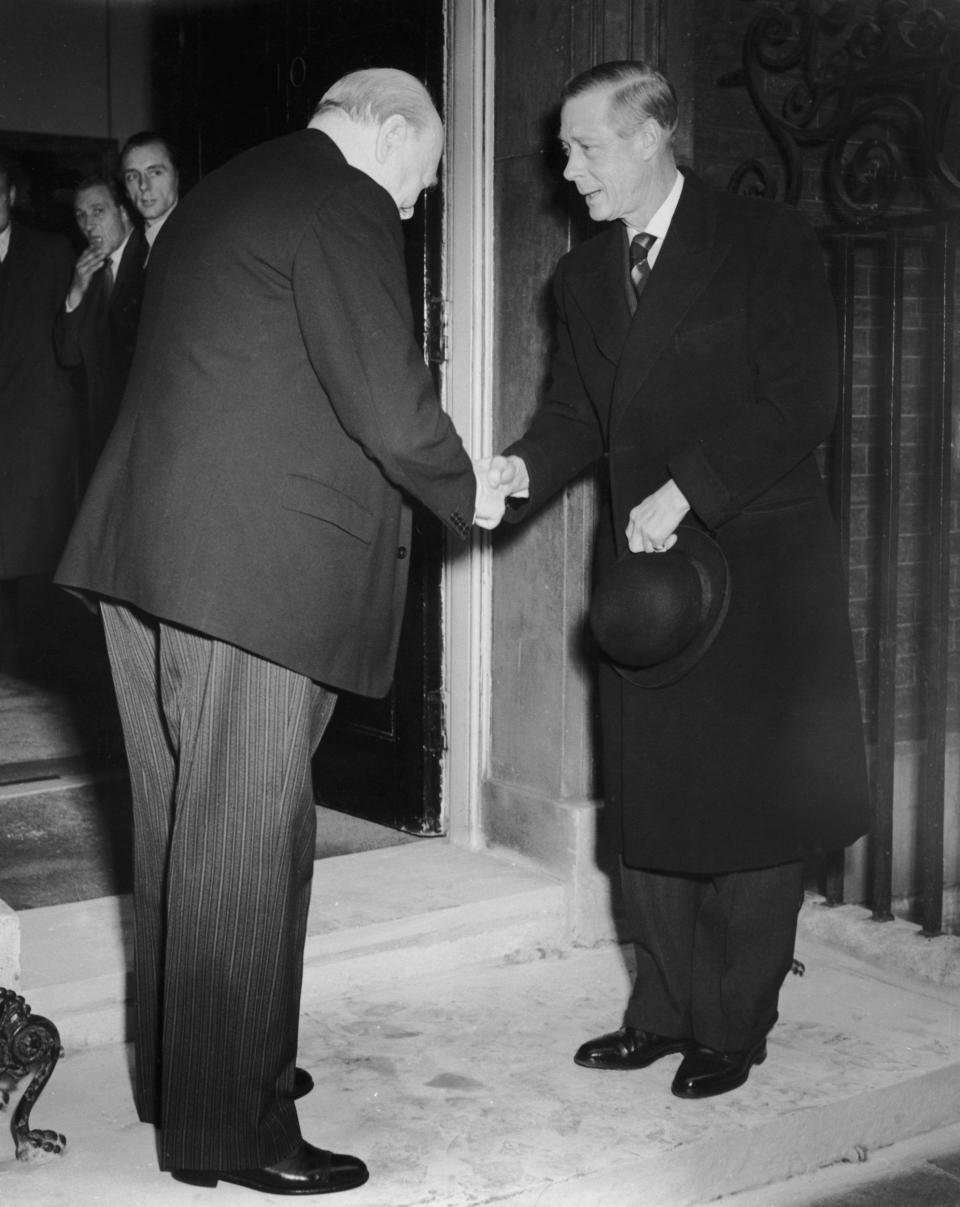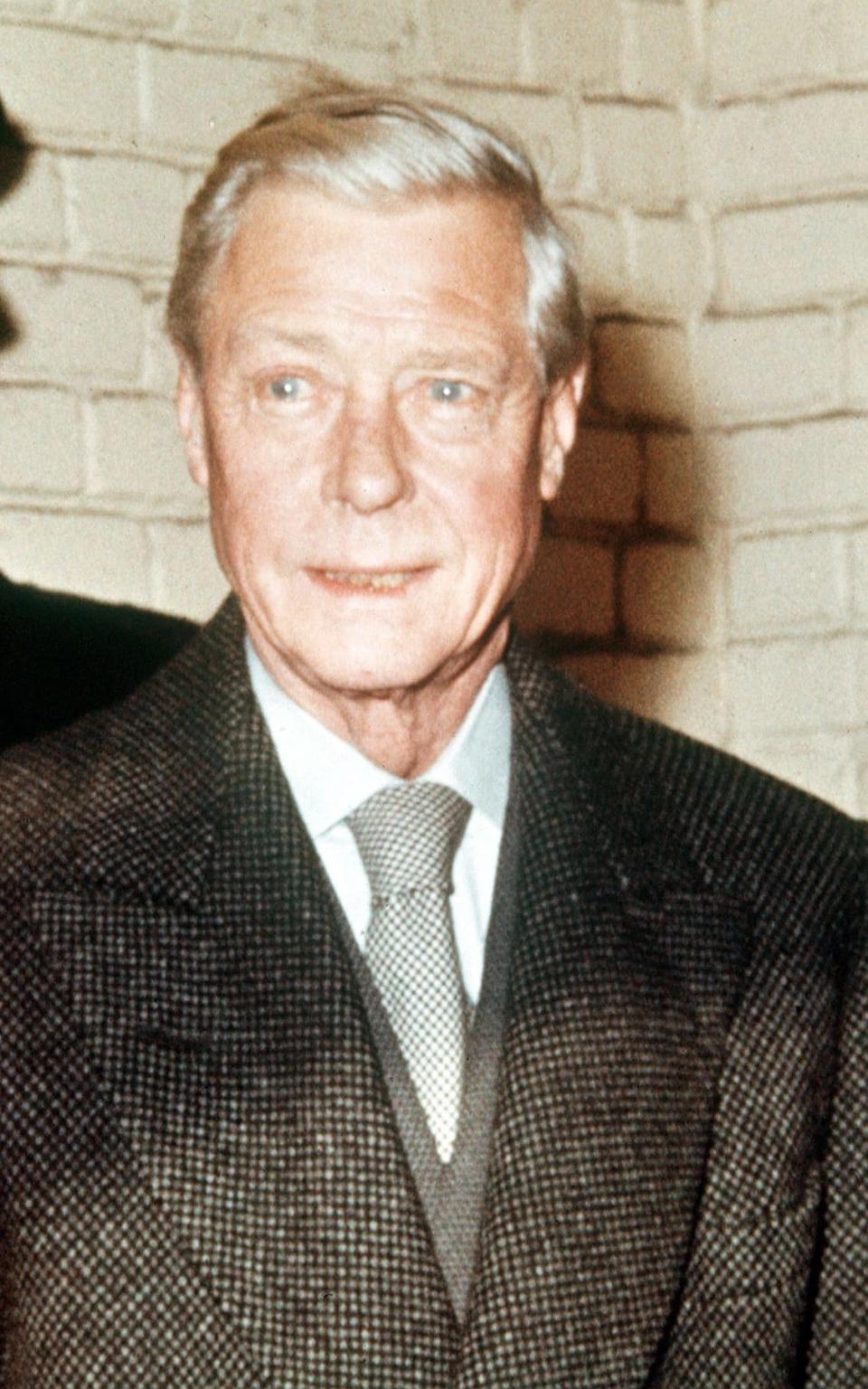Sir Winston Churchill tried to supress secret war documents detailing a Nazi plot to make Duke of Windsor king

Sir Winston Churchill tried to suppress secret Second World War documents detailing a Nazi plot to offer the throne to the Duke of Windsor in the event of Britain’s defeat, newly released secret files disclose.
The Prime Minister personally urged the French and US leaders to block publication of the captured German telegrams after the war, fearing they would “give pain to the Duke”.
While he dismissed the documents as “German intrigues”, he feared they might cast doubt on the Duke’s loyalty.
Details of Sir Winston’s fears are disclosed on Thursday with the publication of previously top secret files at the National Archives in Kew.
The telegrams between Joachim von Ribbentrop, Nazi Germany’s foreign minister, and his ambassadors in Madrid and Lisbon over the summer of 1940 had been captured in Germany at the close of the war and kept secret.
However Churchill learned in 1953 that they were due to be published by official historians the following year as part of an official academic programme by the victorious Allies to release key Nazi documents.

He wrote to Gen Dwight Eisenhower urging him to halt publication. Mr Churchill was ultimately unsuccessful and the telegrams were released a few years later, but the papers released on Thursday disclose his efforts to block their release.
The telegrams between von Ribbentrop and his emissaries apparently outlined how they might discreetly sound out the Duke on his cooperation with Nazi Germany.
In the summer of 1940, following the fall of France, the Duke and Duchess had taken refuge in Lisbon, the capital of neutral Portugal.
The Germans plotted to detain him in Spain, by force if necessary, to prevent British officials taking him to safety in the Caribbean to take up his new appointment as Governor of the Bahamas.
A July 11 telegram from Von Ribbentrop to Lisbon explains that “the Duke must be informed at the appropriate time in Spain that Germany on her side wishes for peace with the British people, that the Churchill clique is standing in the way of this, and that it would be a good thing if the Duke were to hold himself in readiness for further developments.
“Germany is determined to compel England to make peace by the use of all methods and would be prepared in such an event to pave the way to the granting of any wish expressed by the Duke, in particular with respect to the ascension of the English throne by the Duke and Duchess.”

A July 25 telegram from Germany’s Madrid ambassador reports that an unnamed agent of the Spanish Minister of Interior told the Duke not to head to the Bahamas and that the Duke “might yet be destined to play large part in British politics and possibly ascend the British throne”.
When the Duke replied that that the constitution ruled him out of regaining the throne after his abdication, the agent “remarked that the course of the war may produce changes even in the British constitution”.
The agent reported that at that point "the duchess in particular became very thoughtful".
The German plotting amounted to nothing however and the telegrams detail increasingly desperate and unsuccessful German attempts to engineer the Duke staying in Europe.
An August 12, 1953 memo from Mr Churchill to cabinet colleagues and marked Top Secret says he proposed “that publication be postponed for at least ten or twenty years”.

He wanted the delay “on the grounds that these papers, tendentious and unreliable as they should undoubtedly be regarded, would give pain to the Duke of Windsor and leave an impression on the minds of those who read them entirely disproportionate to their historic value.”
A June 27 note from Mr Churchill to the US President called the notes “a Nazi-German intrigue to entangle and compromise a Royal Prince who had been driven out of France and had taken refuge in Portugal.
“If they were to be to be included in an official publication they might leave the impression that the Duke was in close touch with German Agents and was listening to suggestions that were disloyal.”
Mr Churchill went on: “I feel sure your sense of justice and chivalry will make you wish to prevent the United States, by an official publication, from inflicting distress and injury upon one who has so long enjoyed their kindness and hospitality.
“I hope you will join with me and the French Government, who I am also approaching, in refusing to allow the official publication of the telegrams or their revelation to anybody outside the secret circles.”
Gen Eisenhower, replying on July 2 from the White House, said the documents had been examined in 1945 with the conclusion “there was no possible value to them, that they were obviously concocted with some idea of promoting German propaganda and weakening Western resistance, and that they were totally unfair to the Duke”.
However Gen Eisenhower admitted he was not sure what he could do.
Sir Winston conceded to the cabinet that postponing publication would cause anger in academic circles.

 Yahoo News
Yahoo News 